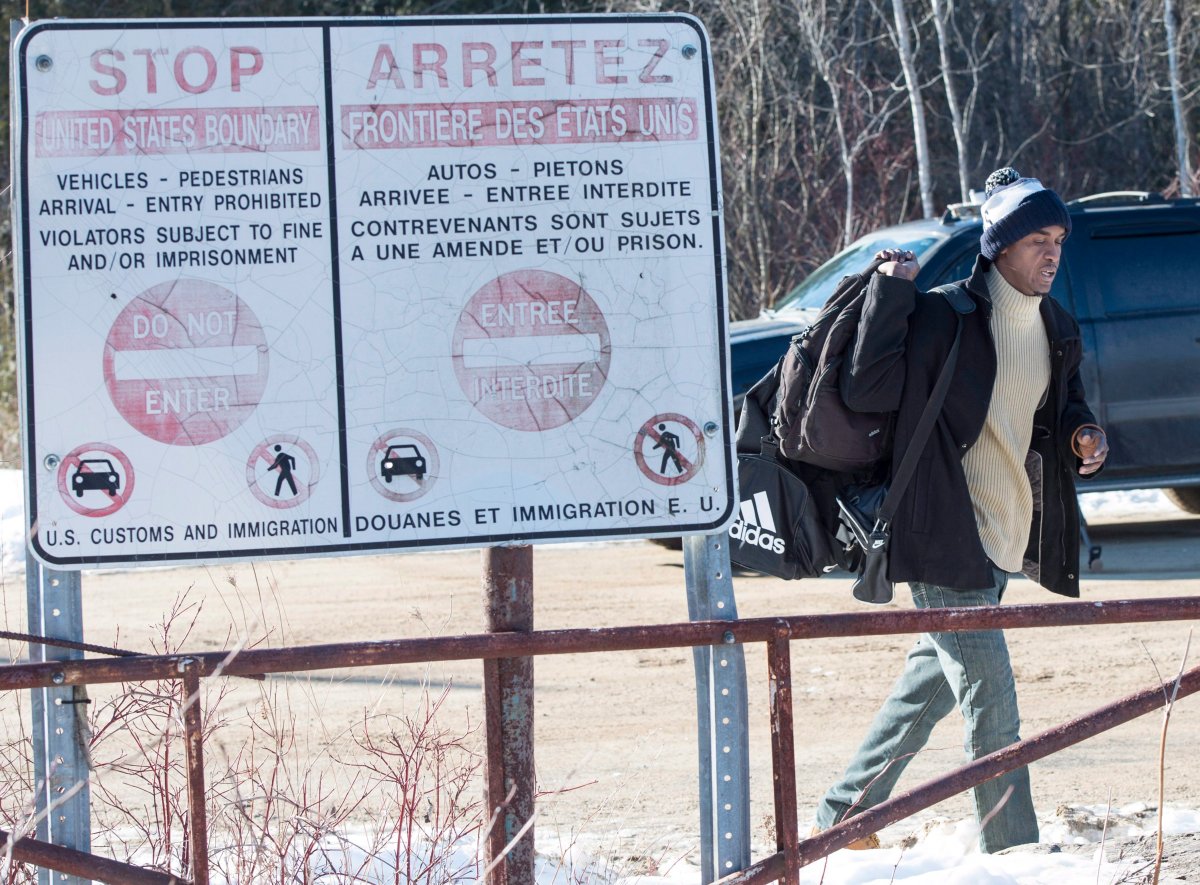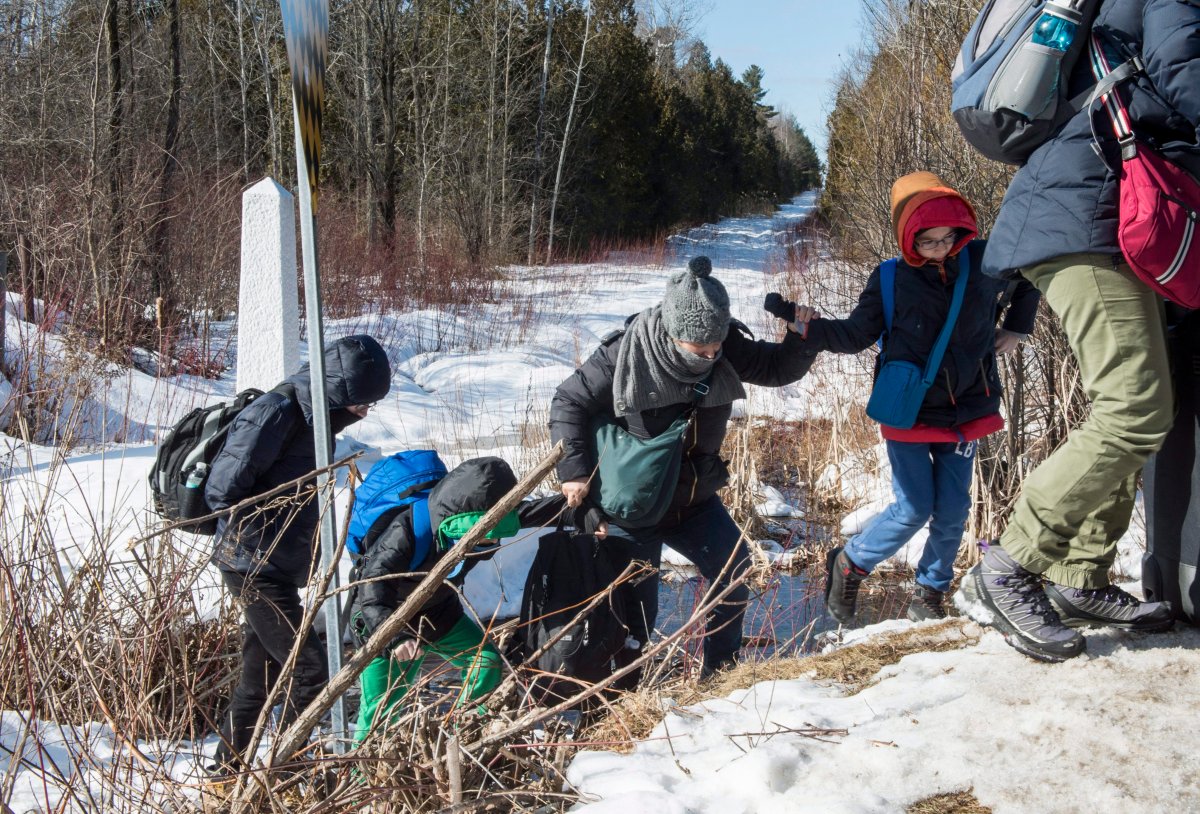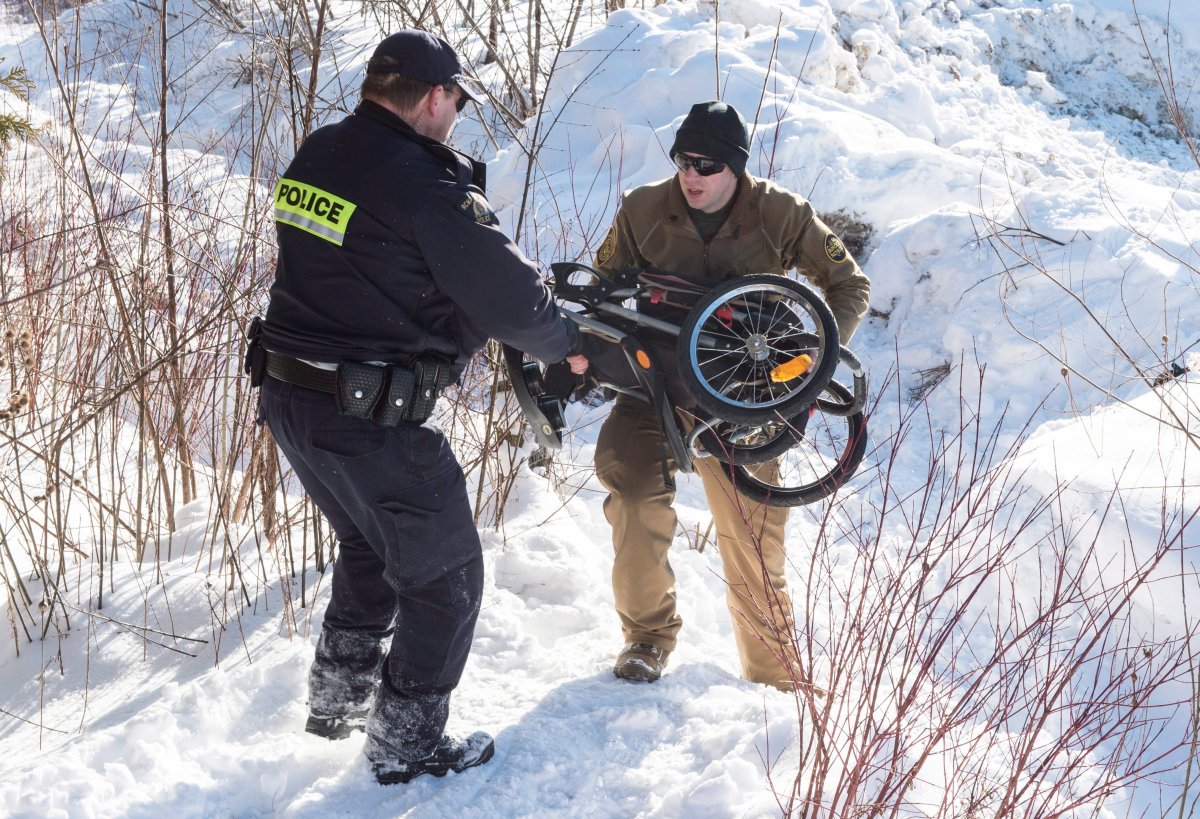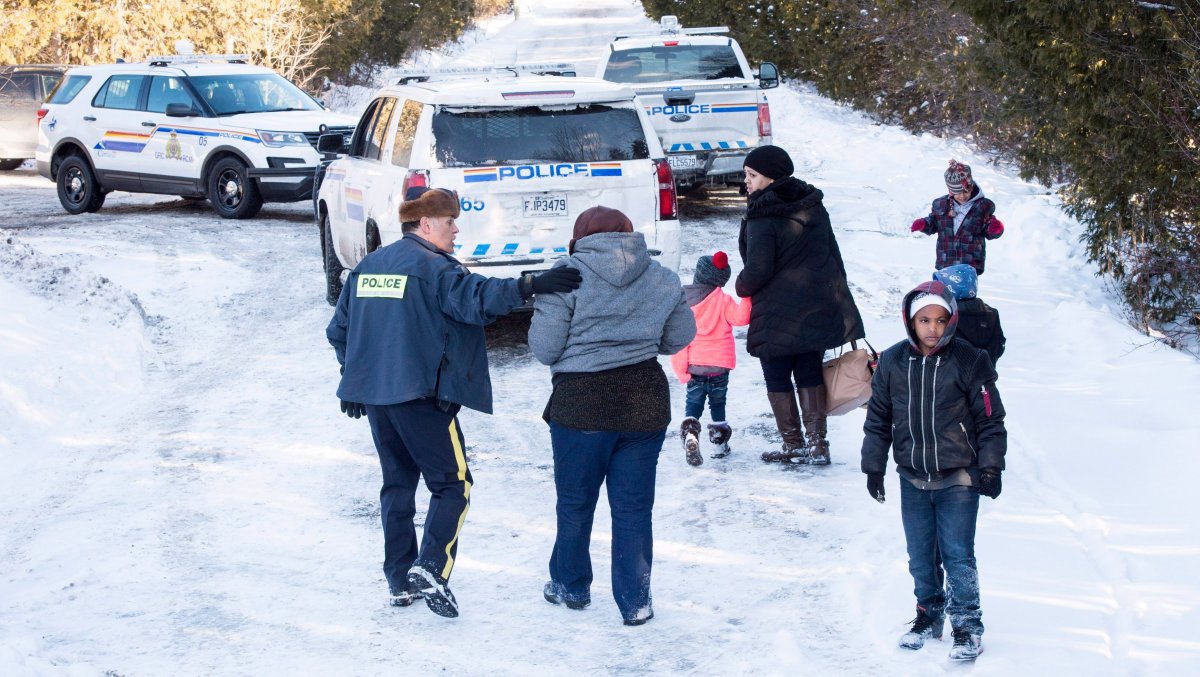The union representing Canadian Border Services Agency (CBSA) officers says there aren’t enough resources to deal with the influx of refugees crossing into Canada from the United States.

Jean-Pierre Fortin, president of the Customs and Immigration Union, says our land border is vulnerable because there aren’t enough people to patrol it.
“We got about 117 land border ports and everything in between is wide open so we’re vulnerable right now,” Fortin told Global News Tuesday. The Canada-U.S. border is the largest international border in the world.
He’s asking the government for two things to help deal with the issue. Fortin would like over 1,000 jobs cut by the previous government restored, and secondly, he is asking for a dedicated team to patrol the border in-between the land ports.
READ MORE: Recent asylum seekers speak to Global News about journey to Canada
The number of refugees have been increasing significantly in the past year. In Manitoba, 430 asylum seekers crossed over from April 2016 to January 2017, up from the 340 who crossed over throughout the previous 12 months.
In Quebec, 1,280 refugee claimants crossed into the province throughout the same nine-month period last year, a total three times higher than the previous year, according to the CBSA. British Columbia and the Yukon are also seeing an increase, with double the amount of people crossing in 2016 from 2015.
The tactic is a way to get around the Canada-U.S. Safe Third Country Agreement, which requires anyone who has already applied for refugee status in the U.S. to be turned away at an official border crossing in Canada. If a person crosses somewhere else and gets apprehended on Canadian soil, they can apply as a refugee and the case is heard by Canadian authorities.
Some immigration lawyers and politicians want Canada to change the agreement so that people can turn themselves in at official border crossings and still get their refugee claim heard.
READ MORE: Why are asylum seekers crossing into Canada on foot and what are their rights?
The reeve of Emerson-Franklin, Greg Janzen, said Tuesday the idea would increase safety for his community’s residents and for the refugees, who have been making long crossings on foot in the dead of winter.
“Let them walk up to the port of entry. Will that bring more people? Yes. But at least it will be in an organized manner.”
CBSA officials are worried about an even larger increase in illegal crossings when the summer comes around. Fortin says a lack of resources leaves Canadians vulnerable.
“Even though we recognize that most people who are coming across, the refugees, are coming here to, you know, to get a better life … but there’s a fraction of these people actually that may come here with not as good intentions, we’re talking about terrorism,” Fortin said.
“The risk is there. Our officers are doing a very good job at land borders, but’s we’re concerned about what’s going on in between those ports right now.”
READ MORE: Trump expansion of deportation guidelines could affect millions of people
Government response
Fortin says he’s yet to hear back from the government on his request.
In Question Period at the House of Commons today, Conservative MP Tony Clement asked Public Safety Minister Ralph Goodale about the issue. Clement called the increase in Manitoba and Quebec worrisome, and asked for a plan to stem the crossings.
Goodale dodged the issue, saying RCMP, CBSA, and immigration officials were “working seamlessly together” to protect the Canadian border.
“If CBSA or the RCMP are too advise us that they need further resources in order for them to do that job effectively we will listen very carefully to that advice.”
WATCH: Ralph Goodale responds to call for more resources at Canada-US border

For their part, RCMP and the CBSA say they are rearranging resources to deal with the influx. Fortin says some CBSA officers who work at the airport are being asked to work overtime at the land border.
But he says that’s not enough.
“It seems that the government is under the impression right now that this situation will go away, and we don’t see that in the very near future,” he said.
“This situation is there, it’s there to persist, and I think you’ll see the numbers increasing significantly.”
At a news conference announcing a plan to resettle 1,200 Yazidi refugees in 2017, Immigration minister Ahmed Hussen said that while there has been a significant increase in the number of illegal land crossings in Jan 2017 compared to Jan 2016, the numbers have always fluctuated.
Both Hussen and Goodale thanked the people of Emerson and Winnipeg for stepping up to help the refugees once they have been processed by officials.
READ MORE: Donations pouring in for refugees crossing Emerson border
*With files from Amy Minsky and The Canadian Press
















Comments